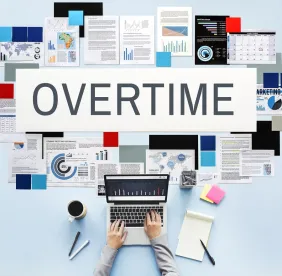Since 2014, employers have been preparing for, and many have already communicated or implemented, classification and compensation changes to comply with the U.S. Department of Labor's revised regulations, which would double the minimum salary required for certain exempt employees effective December 1, 2016. For more information concerning the changes, see our alert on this topic. Yesterday, a federal judge in Texas issued a nationwide preliminary injunction blocking the DOL from implementing the minimum salary hike from $455 weekly ($23,660 annually) to $913 weekly ($47,476 annually). State of Nevada et al. v. U.S. Department of Labor et al., No. 4:16-cv-731 (E.D.Tex. November 22, 2016).
A group of states and business organizations sued the DOL over the controversial new regulations, which would require employers to either begin paying overtime to employees whose salaries fall below the new threshold or increase their salaries to meet the new threshold. At issue is the Fair Labor Standards Act's statutory overtime exemption for employees based on their work in a bona fide executive, administrative, or professional capacity. The court observed that the statute's exemption is based on capacity or duties, not a salary threshold. The court concluded that by significantly raising the salary threshold and imposing an automatic increase every three years, the DOL effectively supplanted the duties requirement with a salary requirement and exceeded its rule-making authority by doing so.
So what does this mean for employers?
-
Employers do not have to make changes required by the DOL's new regulations by December 1, 2016. But, the battle isn't over. The court's ruling could be overturned in further proceedings at the district court level or on appeal. And, employers may not receive advance notice of any further rulings. So, monitor developments and remain ready to comply with the regulations if the ruling does not hold up.
-
The new regulations do not affect the duties required for the exemptions at issue. That means that employees classified as exempt under the executive, administrative, or professional exemptions still must perform exempt duties as defined by the DOL in its existing regulations.
-
What if an employer has already reclassified exempt employees as nonexempt or raised an exempt employee's salary in anticipation of the change? Avoid knee-jerk reactions and thoughtfully consider the ramifications of undoing changes you've already made. Also, make sure an employee's actual day-to-day duties qualify for exempt status—if it's a close call, it might be better to leave your change in place. Finally consider whether any compensation changes implicate state law or contract requirements regarding notice, form, or other procedures for changing employee compensation.
The injunction issued is preliminary, not permanent, and there will be much more legal wrangling to come before employers have any certain path forward.
Christine M. White contributed to this post.






 />i
/>i
